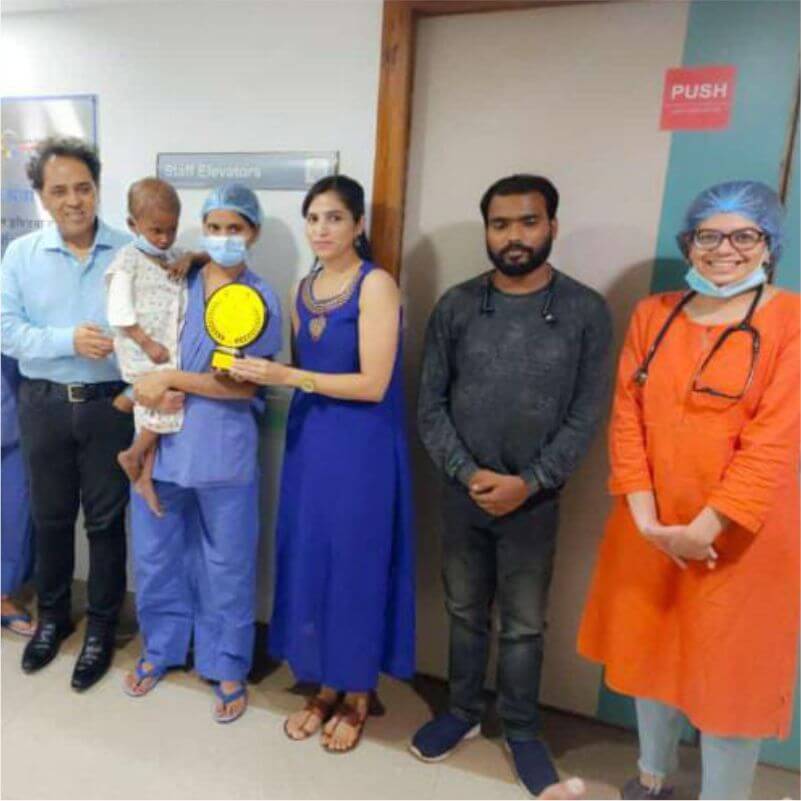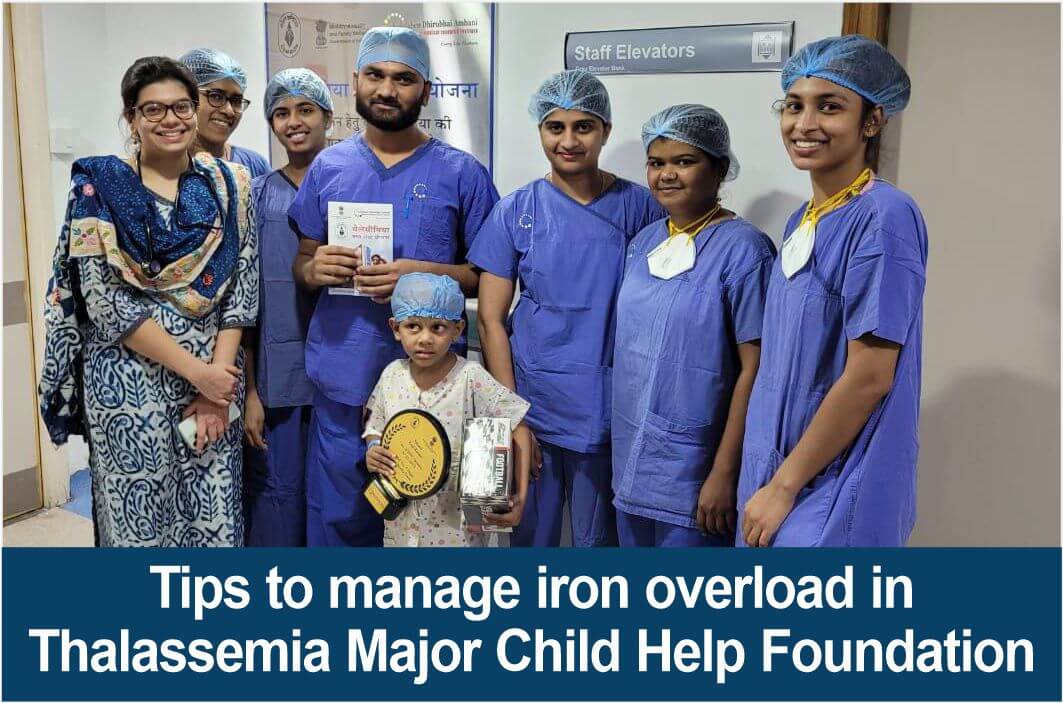Iron overload is a significant concern for individuals with Thalassemia Major. The genetic blood disorder is characterized by inadequate production of haemoglobin in the body. The haemoglobin has two parts- haem, made up of iron, and globin, made of alpha and beta chains. If a child lacks any of these chains in their blood, then they are suffering from alpha or beta-thalassemia.
Regular blood transfusions, a cornerstone of Thalassemia Major Treatment, can lead to excessive iron accumulation in the body. Managing iron overload effectively is crucial for preventing serious complications such as organ damage. In this blog, we will discuss practical tips to help individuals with Thalassemia Major manage their iron levels and maintain optimal health.
Understanding Iron Overload:

Hemoglobin is a protein in red blood cells that carries oxygen throughout the body. In Thalassemia Major, the body's ability to produce haemoglobin is impaired. Thus regular blood transfusions are necessary to alleviate anemia. However, each transfusion introduces additional iron into the bloodstream, as the body cannot regulate iron absorption effectively. Over time, this excess iron accumulates in vital organs such as the heart, liver, and pancreas, leading to tissue damage and dysfunction.
Monitoring Iron Levels:
Regular monitoring of iron levels is crucial for early detection and intervention in Thalassemia Major. Healthcare providers typically assess iron overload through blood tests measuring serum ferritin levels and transferrin saturation. These tests help gauge the body's iron stores and guide treatment decisions.
Iron Chelation Therapy:
Iron chelation therapy is the primary method for managing iron overload in Thalassemia Major. Chelation agents such as deferoxamine, deferiprone, and deferasirox work by binding to excess iron in the bloodstream and facilitating its elimination from the body through urine and faeces. Adherence to prescribed chelation therapy is critical for effectively reducing iron burden and preventing complications. The patients should work closely with their healthcare team to develop a personalized chelation regimen planned according to their needs and lifestyle.
Maintaining a Balanced Diet:
A balanced diet plays a vital role in managing iron overload in Thalassemia Major. Mutton, fish, cereals, certain green vegetables (like spinach) and iron-rich foods should be avoided. However, it's essential to consume adequate nutrients to support overall health and well-being. Emphasize foods rich in calcium, vitamin C, and antioxidants. These nutrients can help mitigate the effects of iron overload and promote iron excretion. Consult a registered dietitian experienced in Thalassemia management to develop a nutritious meal plan that meets your dietary requirements while minimizing iron intake.
Hydration and Exercise:
Staying hydrated and engaging in regular physical activity are essential components of iron overload management. Adequate hydration supports kidney function and facilitates the elimination of excess iron through urine. Additionally, regular exercise can improve blood circulation, promote heart health, and enhance overall well-being.
Managing iron overload in Thalassemia Major requires a comprehensive approach involving regular monitoring, iron chelation therapy, dietary modifications, hydration, and exercise. By following these tips and guidelines, individuals with Thalassemia Major can effectively reduce their iron burden, minimize the risk of complications, and lead healthier lives.
It is estimated that every year more than 10,000 children are born with Thalassemia in India. Child Help Foundation, in collaboration with its crowdfunding partner, Filaantro, is dedicated to supporting underprivileged children fighting Thalassemia Major. Aligned with the Sustainable Development Goal of Emergency Medical Support, we are delighted to report that 3265 financially disadvantaged children have received vital treatments through our fundraising efforts. Additionally, our organization has forged a partnership with Kokilaben Dhirubhai Ambani Hospital and Medical Research Institute in Mumbai, Maharashtra, and launched 'Arogya Sadan,' a project aimed at facilitating bone marrow transplants for patients in need.
